Prostitution decriminalized: Rhode Island’s experiment
Listen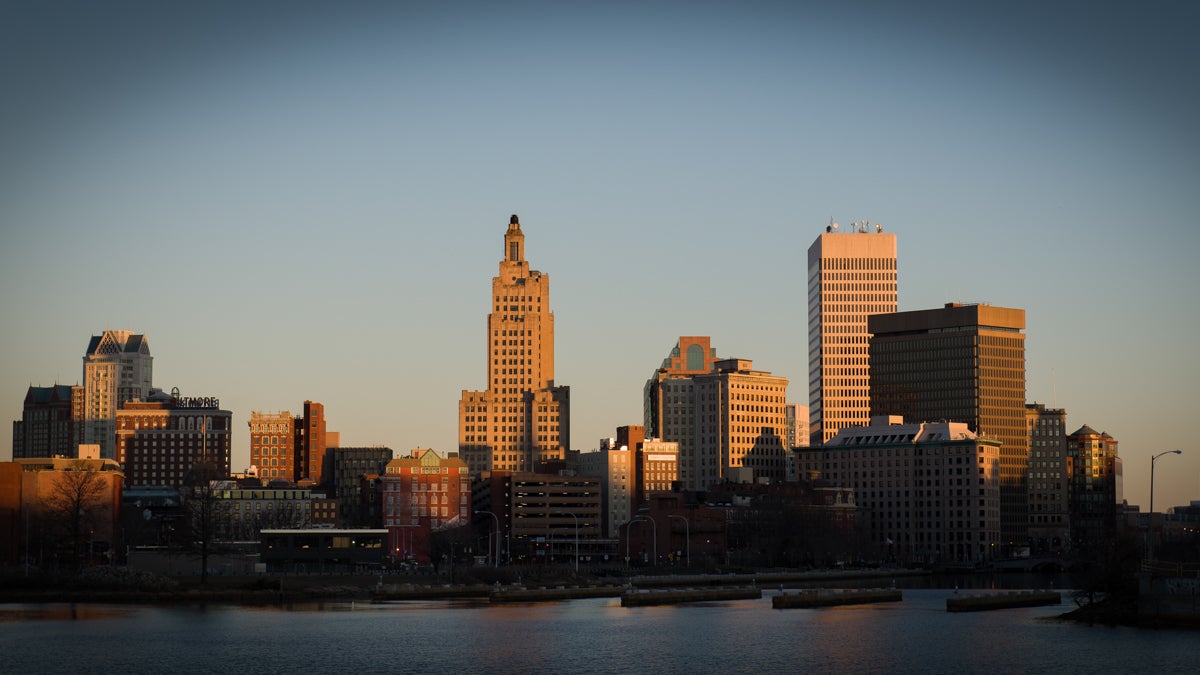 Photo via Flickr) " title="Downtown Providence from Point Street bridge" width="1" height="1"/>
Photo via Flickr) " title="Downtown Providence from Point Street bridge" width="1" height="1"/>
Downtown Providence, Rhode Island. (Photo via Flickr)
What can public health learn from the time the state decriminalized prostitution?
Around the world, there’s a growing movement to decriminalize sex work. Last year, Amnesty International, the largest human rights group in the world, came out with a recommendation that governments should decriminalize consensual sex work and develop laws that ensure workers are “protected from harm, exploitation and coercion.” A United Nations commission has also come out in support of legalizing prostitution.
But the idea is a divisive one, stirring impassioned debates and concerns about the ways varying approaches could harm sex workers. Amnesty’s recent policy drew strong support from public health advocates and intense backlash from those aiming to end prostitution completely.
While prostitution is a crime in most places, there are notable exceptions and variations. The Swedish or Nordic model takes aim at the demand, making it illegal to buy sexual services but not to sell it. Canada has a version of that. Meanwhile in Germany, prostitution is legal. In Australia, the laws vary from state to state, but in some parts, sex workers can legally operate out of their homes, once registered. In Nevada, prostitution is legal in certified brothels, but it’s limited to certain counties.
Understanding the scope, harms and public health implications of policies addressing the world’s oldest profession is really tricky. While prostitution – the buying and selling of sex – is a multibillion dollar industry, the sex trade is clandestine by nature. It’s taboo. That makes it really hard to study, especially in the United States.
That’s most often the case, except in this one part of the country, where the laws of prostitution were totally upended. It’s a peculiar story that’s largely left out of the current discussion. The place in question is not Nevada, where there’s a small number of regulated brothels in certain rural counties.
It’s a whole state – Rhode Island.
For several years, ending in 2009, indoor prostitution such as in massage parlors, strip clubs and through online escorts, was not a crime in this tiny New England State.
The whole thing happened somewhat unintentionally. But at the time, it fueled a heated public debate about sex, crime and health.
Years later, some are revisiting the lessons learned.
The backstory to Rhode Island’s policy
This story really begins in the 1970s, during the era of disco and a sexual liberation movement that included a growing wave of feminism, which viewed prostitution as legitimate, and even empowering, to women.
Margo St. James was an outspoken voice at the time and a founder of COYOTE (Call Off Your Old, Tired Ethics), a sex worker union and advocacy group.
“My goal, of course, is the complete decriminalization of sex for human beings, even commercial sex,” St. James told a CBS Reporter back then. “Just because we’re getting paid for our time doesn’t mean it has to be something you go to jail for it.”
St. James talked of sexual revolution across the country, and in the summer of 1976, her group brought that fight to Rhode Island as part of their goal to reform prostitution laws around the country. In a class action lawsuit in the U.S. District of Rhode Island, COYOTE’s lawyer argued that the state’s law on prostitution was too broad and discriminated against women, given that female sex workers were arrested far more than male customers.
But outside, the streets of Rhode Island were seeing an uptick in prostitution, especially in the Capitol of Providence. Residents were alarmed. The existing statute was “a screen door in a submarine,” one resident testified during a hearing.
To deal with this, state lawmakers tried to speed up the conviction process by making sex work a misdemeanor instead of a felony. That meant they had to rewrite the prostitution statute. But in that rewrite, they narrowed the definition of prostitution to street workers only.
It’s not totally clear why or how that happened, but most people didn’t notice, not even judges or police, for decades.
“I didn’t know that,” said Thomas Verdi, deputy police chief in Providence. “Very few knew that, even judges didn’t know that at the time.”
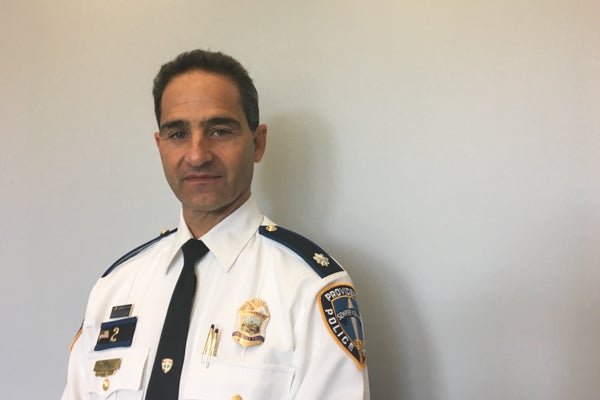
A malpractice lawyer takes a fresh look
Fast forward to the early 2000s. Mike Kiselica, an unassuming civil attorney, got an unexpected request one day.
“In walked a lady and she said, ‘My friends are in trouble, my friends are in trouble, please go help them right now,'” Kiselica recalled from his downtown Providence legal office.
Normally, he doesn’t do criminal defense. Personal injury, insurance and legal malpractice cases are his bread and butter. Still, he listened to the panicked woman whose friends, he says, had been working in a house on a main drive in Providence. Police had arrested them for engaging in prostitution.
Kiselica took the case, but not having done much criminal defense, “I said ‘Gee, I really oughta know the area of law I’m going to be practicing in, so I read the law.”
There’s something to be said for having fresh eyes because Michael noticed something that for years, other criminal defense lawyers hadn’t: that the statute didn’t specify anything about indoor prostitution.
“I took a brand new look at it, I guess you could say,” Kiselica said. “And it became apparent to me pretty quickly that the statute didn’t line up with what the girls had been charged with doing.”
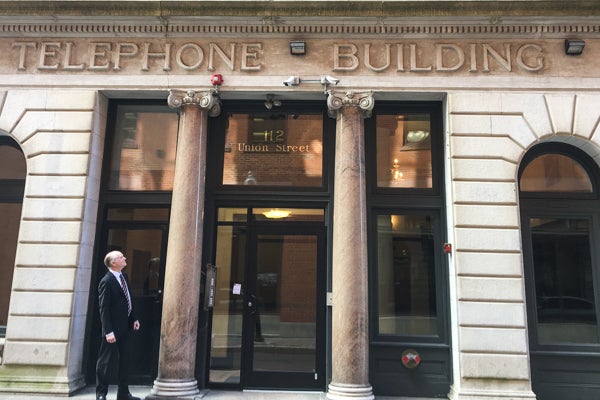
Soon, word got out that he was winning these cases. More women came to him.
“The turning point was when the mayor of Providence, David Cicilline who’s now a United States Congressman for the first congressional district here in Rhode Island, he got word of fact that police was making these raids but the judges were dismissing the cases based on arguments he didn’t think were correct,” Kiselica said.
So in 2003, the city went to trial with Kiselica and his legal defense on the issue. The hope was to squash it and clarify once and for all whether this type of activity was criminal.
But “the judge ruled like I argued that as long as it was two consenting adults, it didn’t matter what they agreed to, as long as they did in private, and it could certainly involve anything including money.”
A booming industry in a tiny New England state
This became referred to around town as “the loophole.”
And with that, the alternative newspaper’s advertising section exploded. Full page advertisements and numerous listings for things like body rubs and table showers flooded the back pages.
Rhode island, home to a little under a million people, gained a pretty big reputation for its now legal sex industry.
When Bella Robinson learned indoor prostitution was decriminalized in Rhode Island, she packed up her stuff and moved there from New Jersey.
“I can go there and be free, and not worry finally,” she remembered thinking.
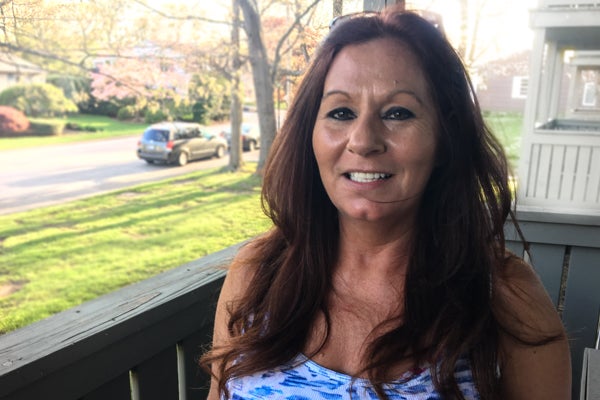
Robinson is an online escort and says in this line of work, anything can go bad at any time. That’s the reality. Rape and homicide are much higher for women engaged in prostitution. But in Rhode Island, she felt safer.
“If someone tried to rape, rob and assault me, I can report it. I can tell on you,” she said, unlike previous situations where if she did call, she risked her own security and arrest.
In Rhode Island, she first stayed in a hotel. Business was great. Money was great. She says she had clients who’d travel in from other states, knowing that it wasn’t a crime there.
“The extent of the prostitution became almost pervasive,” said Providence Police Deputy Chief Thomas Verdi, who headed the Narcotics and Organized Crime Division at the time.
Verdi says beyond an explosion in internet ads, the number of massage parlors involved in prostitution in the city and elsewhere went from just a handful to more than 20…with some scattered in downtown, a short walk from City Hall.
“Law enforcement was handcuffed, and it allowed them to operate with relative ease,” he said. “And because we lacked the indoor prostitution law, and they knew it, it just flourished.”
Making prostitution a crime again
A movement began to get rid of the loophole in the law and once again criminalize all sex work.
“I felt it was very important to stop the movement to decriminalize prostitution in the United States,” said Donna Hughes, a sociologist at the University of Rhode Island.
Hughes says she doesn’t support criminalizing women and that originally she was open-minded about the Rhode Island loophole. But she says when she started researching the consequences of it, she changed her mind. Even worse, she worried Rhode Island would become ground zero for decriminalization across the country.
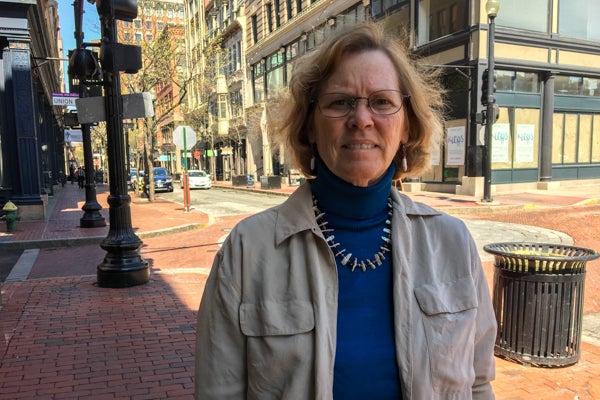
“You see the silencing of victims,” Hughes said. “It is just very harmful to women. It really is a libertarian approach, but the ones who get freedom are the pimps, the sex buyers, the businessmen who then can rent properties to the massage parlors, and to the sex buyers. There’s very little freedom for the women.”
Hughes also worried that decriminalization fueled sex trafficking, or the kidnapping of usually young women, and forcing them into prostitution.
Verdi, Providence’s deputy police chief, was also concerned about that. He says some of the spas were hiding trafficking and other organized crime.
“The police were powerless at that time,” he said.
Many of these spas, he added, were staffed by Asian immigrants who’d “spend anywhere from three to five weeks, sometimes longer, before someone from the organization would pick them up and then take them to another city, whether it be New York, Philly was involved, Chicago.”
The debate over whether to make indoor prostitution a crime again divided Rhode Island residents, law enforcement, social workers and even feminists.
“I was very green and I didn’t know anything about it,” said Tara Hurley, who went on to make a documentary about the spas. She brought in translators, interviewed several workers and ultimately, wound up getting involved herself, organizing many of them to testify in defense of decriminalization.
“I thought that it was the right thing to do when they were making these assumptions on these women,” Hurley said, adding that many of the women she talked with were upset with how they were being portrayed. “You know nobody wants to be portrayed as a slave.”
Passions ran high. The finding of a teen working in a strip club became a point of contention. Ultimately the push to re-criminalize won out. The governor signed the law to get rid of the Rhode Island loophole on November 3, 2009. The state also passed a human trafficking law and one preventing minors from working in the adult entertainment industry.
“Prostitution, outdoors or indoors, is a bad thing,” Governor Don Carcieri said on NPR. “I think it’s been a black eye, frankly, in our state that we’ve allowed this to go on, whatever the reason is, for far too long.”
Michael Kiselica, the lawyer who found the original loophole, was dumbfounded.
“One day you’re a criminal, the next day they flip a switch and the law changes and you’re not a criminal, and then six years later they flip the switch and you become a criminal again,” he said. “It is a little crazy.”
Most of the massage parlors shut down.
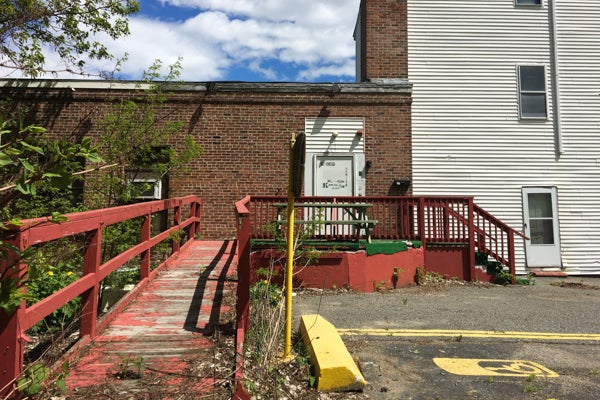
As for Robinson, the online escort who moved to Rhode Island? She was angry.
“It pissed me off. I didn’t know nothing about activism, I didn’t know what a sex worker rights organization was,” she said.
Robinson changed that. She became active with COYOTE, the sex worker union and advocacy group.
“Criminalization is a punishment for women who won’t conform,” Robinson said. “And we’re just supposed to go live in the streets in poverty and not complain about it, and be good women.”
Researchers take notice
Robinson gained an unlikely ally of sorts two-and-a-half-thousand miles away.
“I think more people should be talking about Rhode Island,” said Manisha Shah, an economist at UCLA. “I think, for me, the biggest takeaway is that decriminalization really does improve public health outcomes.”
Shah studies the worldwide economics of prostitution, and for her, the Rhode Island experience was pure gold in terms of its research opportunities.
“I was excited,” she recalled. “I was like, we can do really, really great research from, you know, from this natural experiment.”
When else does a social science researcher get a real life case study like this, especially on prostitution, which is so hard to study?
Shah says the circumstances surrounding Rhode Island’s experience make it ideal to study.
“In a world where you want to show something caused, like X caused Y, you, ideally, would have a random assignment. I can’t think of a world where policymakers are going to randomly decide to change prostitution laws and we’ll kind of be able to do an analysis. But basically what happened in Rhode Island is almost like a random assignment,” said Shah. “It happened, suddenly it happened unexpectedly and all of a sudden you have this huge population of people that’s affected by this policy change.”
Shah says state data is also available pre and post decriminalization, and beyond that, “we can use the rest of the United States or we can use the neighboring states as a nice control group.”
“When you have countries like Sweden or New Zealand changing their prostitution laws, the whole country was doing it at once and so it’s hard to think of what a good control group was.”
So, what did she and her colleague, Scott Cunningham at Baylor University, find?
The obvious: sex work exploded.
But then, the not so obvious: female gonorrhea rates statewide plummeted during the overt decriminalization period.
“It goes down by around 40 percent,” Shah said. “We spent a lot of time beating up the data and estimating these things in different ways, and we just can’t get the results to go away, regardless of what we do, they’re there.
A forty percent drop is a big deal in the world of public health. Shah thinks one of the reasons for this positive outcome is that legalization empowered sex workers to say no to riskier sexual behavior. She also wonders if newer people were entering the market and didn’t have as big of an STD risk.
Still, perhaps even more surprising than the decrease in gonorrhea was another public health development. Sexual violence, or rapes, dipped dramatically. And this wasn’t just amongst sex workers. It was across the board, according to FBI crime reports and jurisdiction level data.
“Reported rape offenses decreased by about 30 percent,” Shah said.
That’s another big decrease. Shah says, if anything, you’d expect rape to go up as when prostitution is decriminalized, sex workers are more likely to report rapes. She compared this to neighboring states, too. The drop was only in Rhode Island. So she examined other crime data in Rhode Island, like burglaries and murders, to see if there had just been a drop in crime generally.
It didn’t match. So what happened?
That, she says is harder to answer. She has a theory, though, in that while she knows for some men rape is about power, “I think the argument that we’re making is that that might not be true for all men, and for some, these activities could be substitutes.”
In other words, for some men, rape may be just about sex. And if there’s a legal and accessible market for it, the number of rapes in a community may go down.
This has not been a popular theory or study. And for many, it challenges the notion that rape is about violence and power, and not sex.
“So I consider myself a feminist, but I think this finding angers a lot of feminists,” Shah said. “It is a very controversial idea.”
And then there’s that other controversial area: could decriminalization fuel sex trafficking and sexual exploitation?
“I definitely worry about that,” Shah said. “It’s an area that I would love to, to be able to do more with.”
Still Shah believes there’s no solid evidence yet that decriminalizing prostitution does lead to an increase in trafficking women and forcing them into prostitution.
“There is not good empirical evidence for this either way, and part of that is because it’s just very, very hard to collect good data on numbers of human trafficking.”
Providence Police Chief Thomas Verdi says he hasn’t paid attention to the study. Hughes has and she strongly objects to it. Prostitution, in any form, she contends, is modern slavery.
For Shah, that philosophy is troubling.
“The thing I worry about, though, is the conflation of human trafficking and sex work,” Shah said. “Because I think there is a huge segment of the sex work population that is making the decision to do this type of work.”
By that, she means some make the choice, as opposed to being forced into it as a kid. Still, she recognizes that it’s complicated.
“I’m struggling with this because it’s a difficult issue. And, you know, this idea of free will – it’s sort of this idea of free will within constraints. It’s sort of ‘this is the best choice I have given all these other constraints that exist, which is that there are very few other labor market opportunities for me. I might be relatively uneducated. I have two kids I need to send to school and feed, etc. So it’s sort of the choice you’re making within this set of constraints that you have to live with.”
So now what?
The sex market and this type of work, meanwhile, hasn’t gone away in Rhode Island.
Robinson, the online escort who moved to the state and is now a sex worker activist with COYOTE, says the oldest profession has just gone back underground or moved to other corners of the internet.
She’s now helping a researcher at Rhode Island’s Brown University, connecting with those sex workers, to learn about their experiences since indoor prostitution was re-criminalized.
“We interviewed 62 Rhode Island sex workers on their real lives and experiences,” Robinson said. “And I didn’t post the link anywhere. I actually called and emailed all the escort ads.”
The hope is to gain even more insight from this brief experimentation with legal prostitution in this small New England state.
WHYY is your source for fact-based, in-depth journalism and information. As a nonprofit organization, we rely on financial support from readers like you. Please give today.




